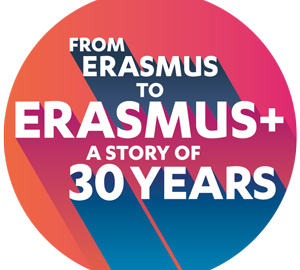In the recent years, the University of Žilina (UNIZA) has become more internationalized through participating in various European projects. One of the examples is the ERA Chair project ERAdiate aiming at increasing the competitiveness and attractiveness of the institution by recruiting a team of international researchers to unlock the research potential of the local scientific community. The project has already brought the university remarkable achievements, proof of which were also the results of the UNIZA Rector´s Awards. Two members of the ERAdiate team were recognized for their contribution to the research activities at UNIZA and were awarded for their achievements: Giuseppe Lugano as UNIZA researcher of 2018 and Ľuboš Buzna with two awards for his high quality scientific publications.

To learn more about the background of UNIZA research experience, potential and future outlooks, on this occasion, we present an interview with one of the honoured researchers, Giuseppe Lugano, on his success and experience at UNIZA.
Giuseppe, how did you react when you received information about this award?
Obviously, I was very happy to receive this news: at a personal level, I deeply appreciated the public recognition of the quality of results from the hard work I invested since the first day of work for the ERAdiate team. At a more general level, it is a significant sign of the willingness of the institution to invest in attracting international researchers to increase its visibility and recognition.
What were your motivations to work for the ERAdiate project at the University of Žilina?
Before moving to Žilina, I was working as a Science Officer for the COST Association in Brussels. Although I enjoyed that work and the position that I kept for 5 intense and successful years, it was time for me to take a new career challenge and the opportunity to work for the ERAdiate project came at the right time. The opportunity to contribute to developing research and innovation activities at UNIZA, also through a contribution to structural changes and to internationalisation, was an exceptionally stimulating challenge that I accepted with enthusiasm.
You managed to obtain a H2020 research and innovation action with a Coordinator role for UNIZA. This is, so far, the first and only H2020 project coordinated by a Slovak academic institution. Can you share some tips on the ingredients for success in EU-funded projects?
There is no universal recipe that ensures success in project proposals, especially H2020 ones. On the other hand, it is known that it is not enough to have a brilliant idea and an extensive knowledge in the relevant scientific areas of the proposal. Especially when initiating and leading the preparation of a proposal, a large variety of skills are needed. Obviously, one must be strongly motivated, well-organised, persistent and full of enthusiasm for involving additional contributors and strong partners in the joint effort.
The case of MoTiV is quite special, as it was obtained within the context of the ERA Chair project ERAdiate. From this point of view, the granting of the MoTiV project was a double-success: a remarkable achievement of the ERAdiate project and a milestone for the research and innovation activities at UNIZA. The ERAdiate team is particularly proud of this achievement, since it was obtained in rather short time and by a small team with limited knowledge of the local context.
You have been awarded as “UNIZA researcher of the year 2018” for the contribution, through the MoTiV project, to the research and innovation activities of the institution on sustainable and multi-modal mobility. What impacts could we expect in the coming years for UNIZA?
In the short term, I hope that the MoTiV and the ERAdiate projects will be a source of inspiration for UNIZA researchers, especially young ones, and a demonstration of the added value that international researchers can bring to this institution. What next? UNIZA has a great potential that has largely not been exploited yet. In my view, within the next 3 years UNIZA could aim at coordinating at least 3 additional H2020 projects and in 5 years to attract 10% of its research staff from abroad and to obtain a prestigious ERC grant. These are the most visible recognitions of the scientific excellence and attractiveness for an institution. The ERAdiate team is putting a big effort in contributing UNIZA to achieve these and other objectives, both through the organisation of events and the preparation of project proposals in the area of Intelligent Transport Systems and Sustainable Mobility.

